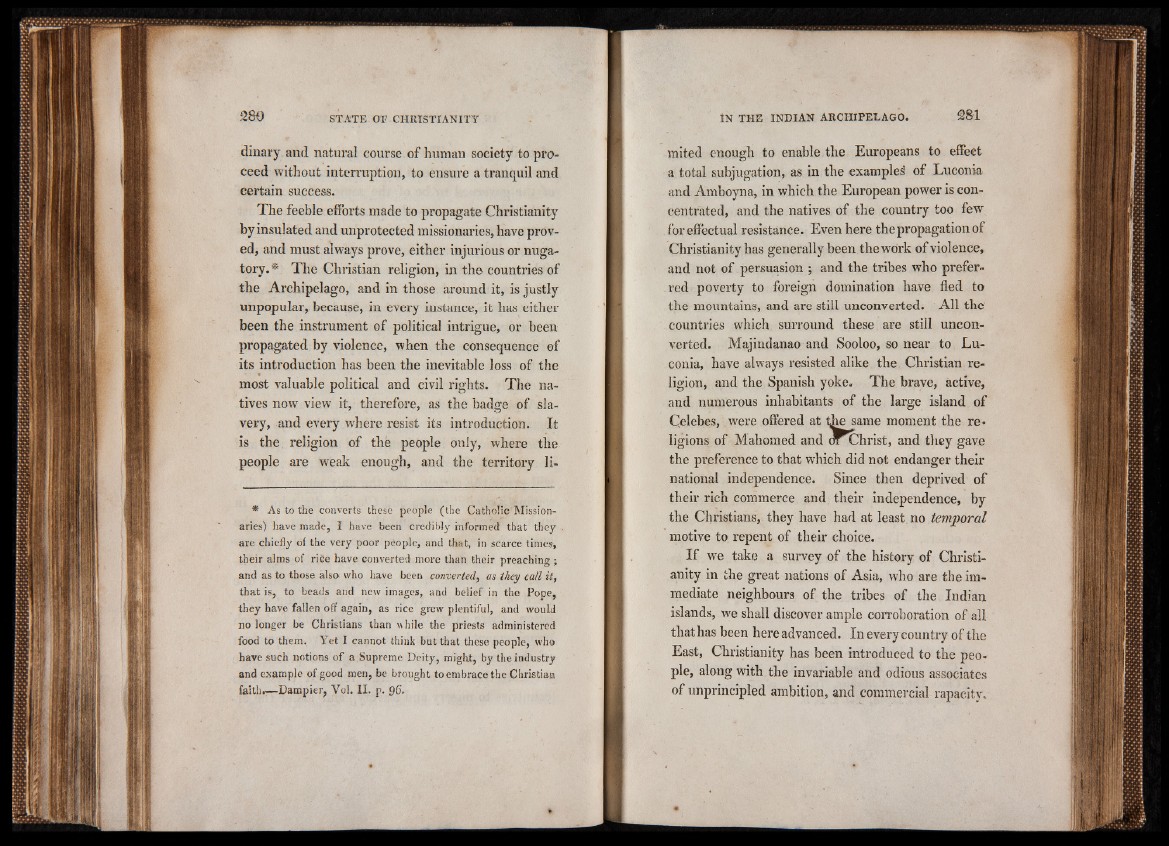
dinary and natural course of human society to proceed
without interruption, to ensure a tranquil and
certain success.
The feeble efforts made to propagate Christianity
by insulated and unprotected missionaries, have proved,
and must always prove, either injurious or nugatory.*
The Christian religion, in the countries of
the Archipelago, and in those around it, is justly
unpopular, because, in every instance, it has either
been the instrument of political intrigue, or been
propagated by violence, when the consequence of
its introduction has been the inevitable loss of the
most valuable political and civil rights. The natives
now view it, therefore, as the badge of slavery,
and every where resist its introduction. It
is the religion of thé people only, where the
people are weak enough, and the territory li*
As to the converts these people (the Catholic Missionaries)
have made, I have been credibly informed that they
are chiefly of the very poor people, and that, in scarce times,
their alms of rice have converted more than their preaching ;
and as to those also who have been converted, as they call it,
that is, to beads and new images, and belief in the Pope,
they have fallen off again, as rice grew plentiful, and would
no longer be Christians than while the priests administered
food to them. Yet I cannot think but that these people, who
have such notions of a Supreme Deity, might, by the industry
and example of good men, be brought to embrace the Christian
faith.— Dampier, Vol. II. p. 96.
mited enough to enable the Europeans to effect
a total subjugation, as in the example^ of Luconia
and Amboyna, in which the European power is concentrated,
and the natives of the country too few
for effectual resistance. Even here the propagation of
Christianity has generally been the work of violence,
and not of persuasion ; and the tribes who preferred
poverty to foreign domination have fled to
the mountains, and are still unconverted. All the
countries which surround these are still unconverted.
Majindanao and Sooloo, so near to Luconia,
have always resisted alike the Christian religion,
and the Spanish yoke. The brave, active,
and numerous inhabitants of the large island of
Celebes, were offered at tjxe same moment the religions
of Mahomed and dT Christ, and they gave
the preference to that which did not endanger their
national independence. Since then deprived of
their rich commerce and their independence, by
the Christians, they have had at least no temporal
motive to repent of their choice.
If we take a survey of the history of Christianity
in ¿he great nations of Asia, who are the immediate
neighbours of the tribes of the Indian
islands, we shall discover ample corroboration of all
that has been here advanced. In every country of the
East, Christianity has been introduced to the people,
along with the invariable and odious associates
of unprincipled ambition, and commercial rapacity.